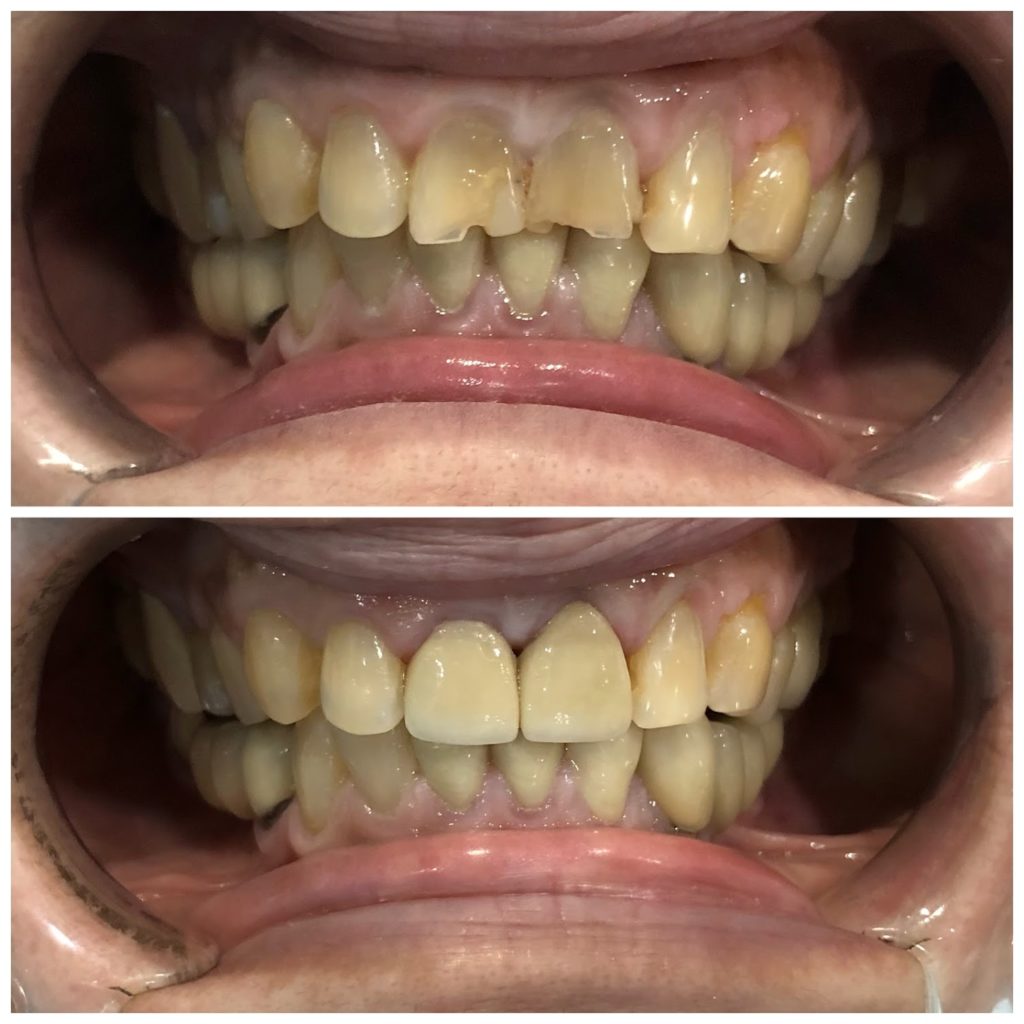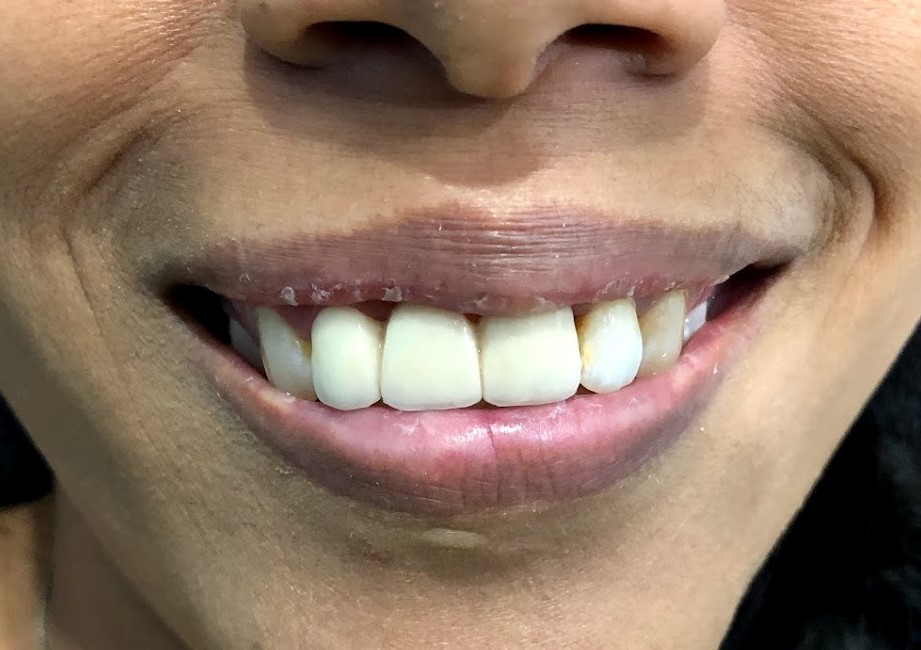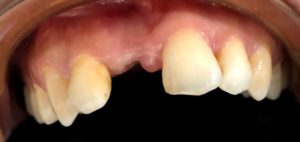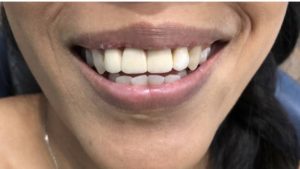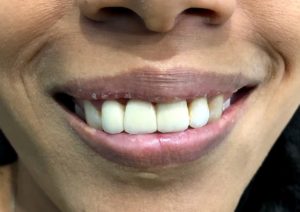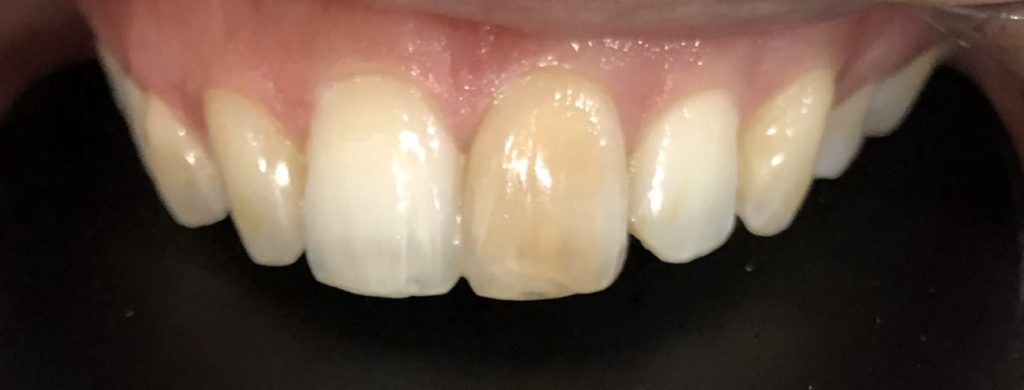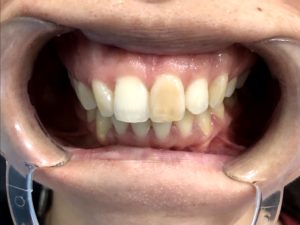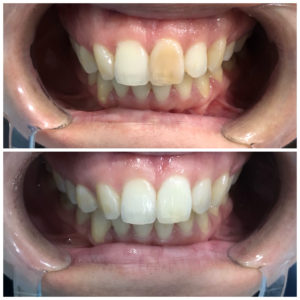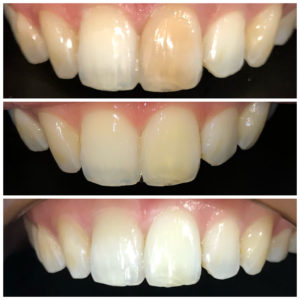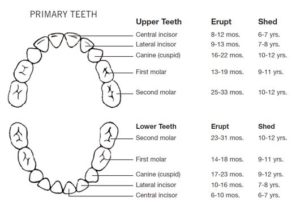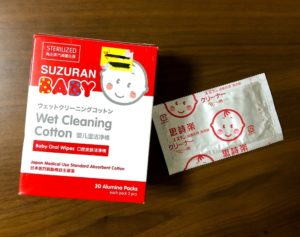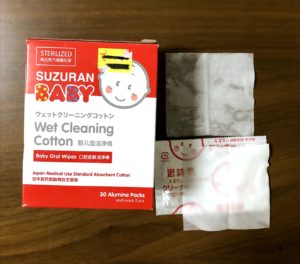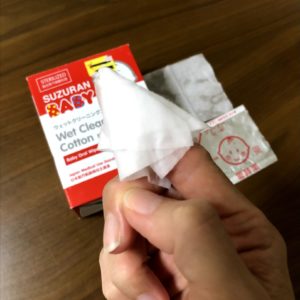Dental Crowns to Restore Youth, Smile and Function
What Is Dental Crown?
Dental crown is a tooth shaped cap which caps or encircles a tooth.
It is getting popular nowadays for different reasons.
Among the reasons are:
- Restore and protect a tooth when a dental filling cannot support the tooth which otherwise risks being pulled out
- Reshape a tooth for aesthetic reason
Nora’s Experience of Dental Crowns
Nora had been a patient of mine since few years back.
One of her biggest concern about her dental condition is her damaged two upper front teeth.
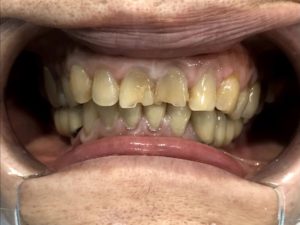
Her two upper front teeth slowly worn out over years due to her habit of grinding teeth.
We had been monitoring these teeth and protective measurement i.e. night guard had been carried out since long.
However, the teeth continue to fracture piece by piece.
One day finally we both agreed that it is time to take active action to protect these teeth before the condition become unsalvageable.
In Nora’s case, we decided to go with two dental crowns as these are the two most injured teeth.
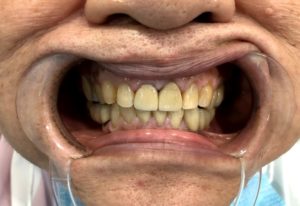
Honestly, the result of this case turned out to be surprisingly beautiful.
The two beautifully crafted crowns not only protect Nora teeth, but also immediately made her look much younger than before.
On the day she got her new crowns, we both were amazed that she not only got new stronger teeth, but she got new smile;which immediately made her look younger by at least a decade.
I am amazed and happy to see the life changing smile that she got, so does she.
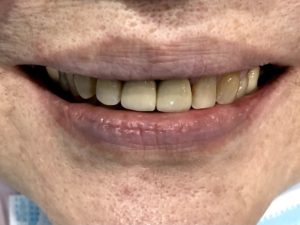
A picture tells everything. I am sure you could tell how happy she is.
Her smile undoubtedly tell you that she is now a much confident and happy elder citizen.
And I recall this phrase: Do not let you age to decide how old you are.
You are in charge of yourself and how your smile looks like.
Do not let your teeth to decide who you are and worse make you look older than you are!
Make a change now and you too can gets old gracefully!
With Love,
Gwen Gan

